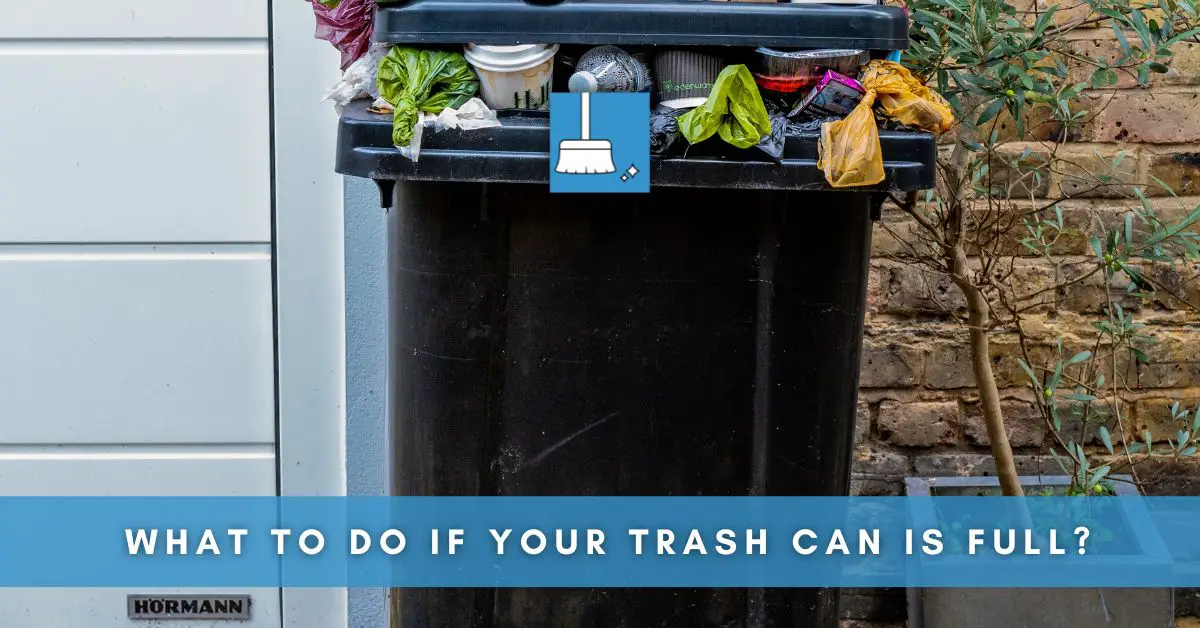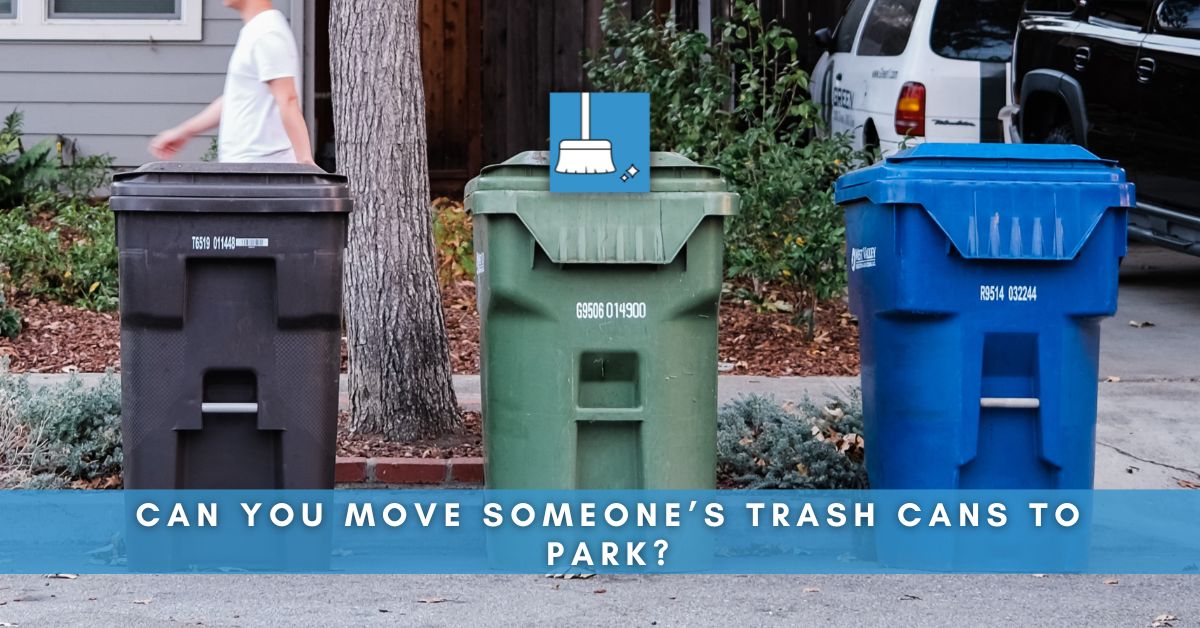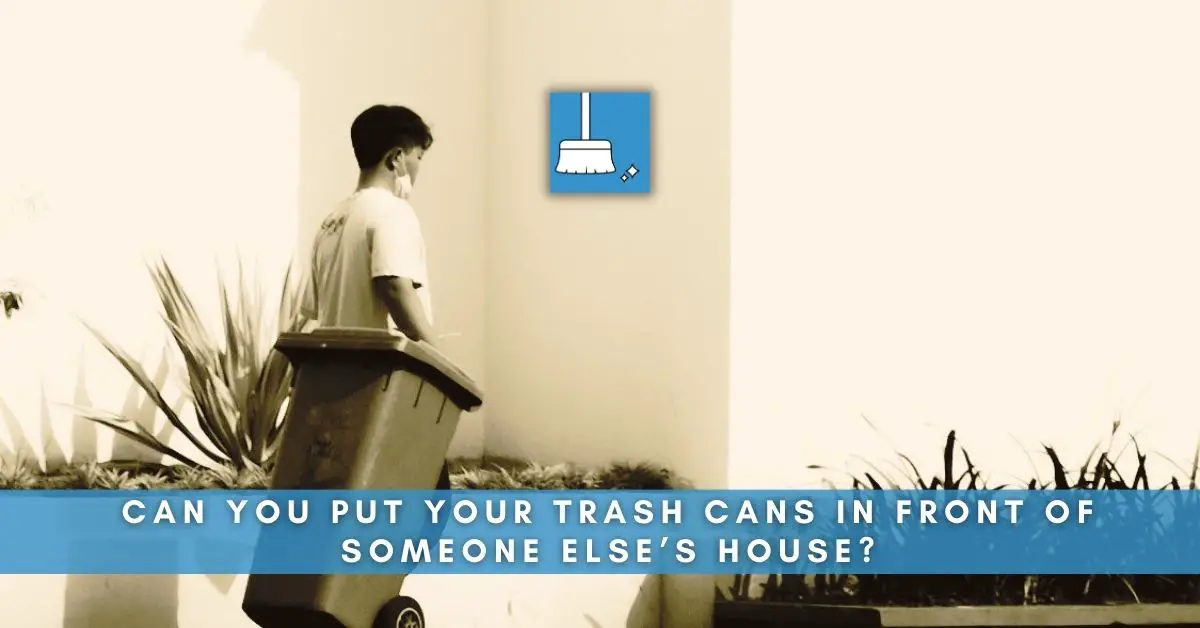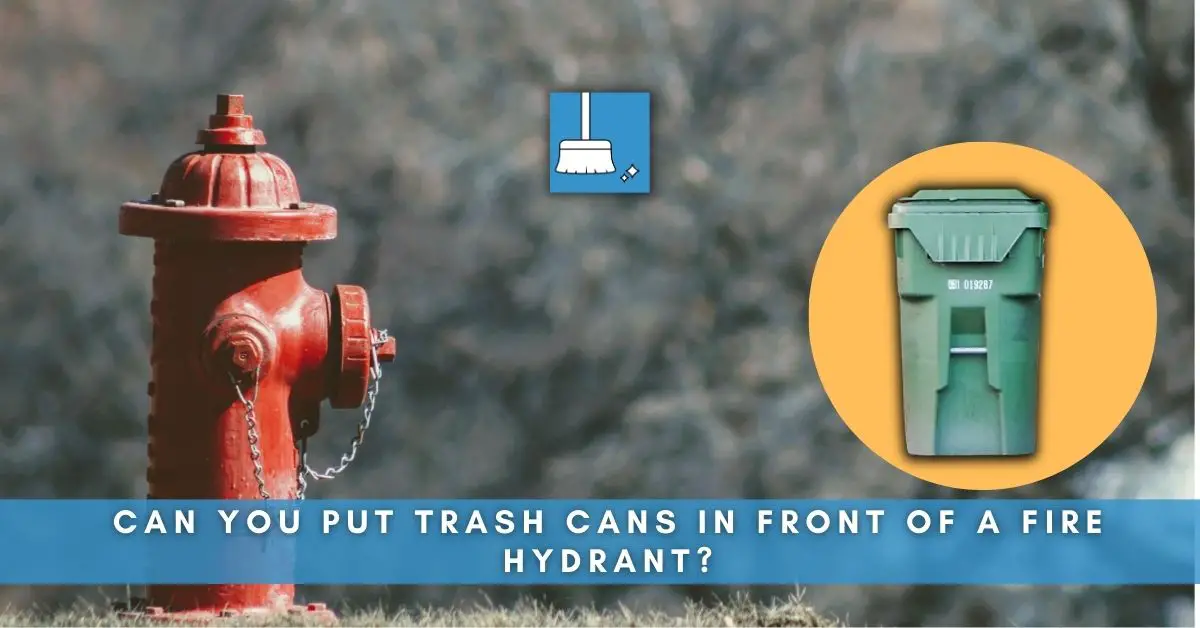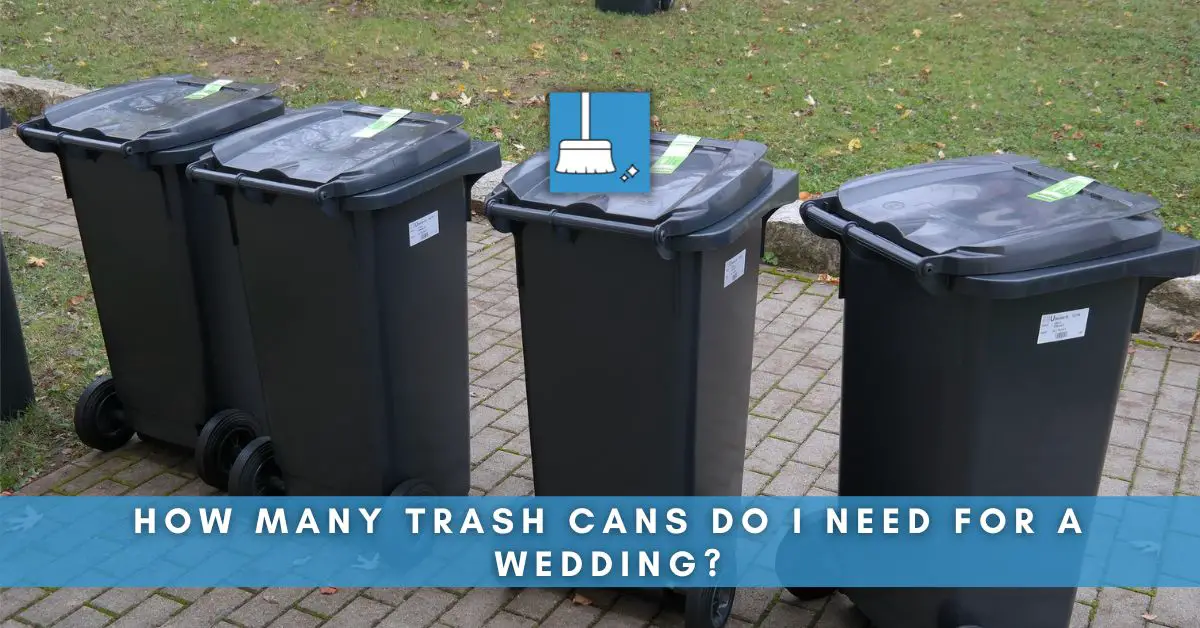Living in a fast-paced society, managing waste can become quite a task for many of us, and more often than not, we find our trash cans overflowing. It is crucial to understand why your trash can may be full and how to solve this problem.
Why Your Trash Can May Be Full
Those who find their rubbish bins reaching full capacity every week often have to face the unpleasant task of dealing with overflowing garbage. There could be various reasons why your bin is always full.
1- You may be generating waste at a faster rate than your trash collection schedule allows.
2- Another reason could be that you’re not utilizing all the waste management options effectively, such as recycling or composting. If you live in a busy household, the waste production might naturally be more.
3- A bigger issue could be the lack of understanding of how much waste is produced and how to manage it effectively.
What to do if your trash can is Consistently full?
If your trash can fills up faster than your collection schedule allows, it might be time to consider an upgrade. Many waste management services provide different bin sizes to accommodate varying waste generation rates.
For instance, Southern Oregon Sanitation Inc. offers three different bin sizes depending on the household size and how much trash it generates.
One more thing to consider is your waste segregation habits. By recycling and composting appropriately, you can significantly reduce the amount of waste that goes into your trash can.
For example, Miami-Dade County provides curbside recycling service to single-family homes, along with resources on proper recycling practices and home chemical product disposal.
Remember, each city or county has its own set of rules and schedules for waste collection, so it is essential to familiarize yourself with your local regulations.
Temporary Solutions for a Full Trash Can
Here are some temporary solutions that might help:
#1- Compacting trash to create more space
Compacting the waste doesn’t mean purchasing a waste compactor but simply reducing the physical space that a piece of waste takes up.
For instance, a milk jug can be squeezed down to about a quarter of its size, and when the top is screwed back on, it will maintain this smaller shape and take up less room.
Crushing cardboard boxes and similar items are another way to reclaim space in your bin.
#2- Using additional trash bags or bins
If you consistently find the garbage bin overflowing, you may consider acquiring additional waste containers.
Making use of heavy-duty trash bags for the excess waste is another plausible option. Just remember these bags should be set out on pick-up day.
Remember that these are just temporary solutions, and in the long run, it is crucial to manage waste more efficiently.
Permanent Solutions (For Overflowing Trash Cans)
1- Reduce Waste
One of the easiest ways to manage the problem of a full trash can is to simply reduce the amount of waste you produce. By creating less garbage, you won’t have to worry about overflowing bins or excessive trips to the waste management facility.
Methods for reducing waste production
There are several methods that can help you decrease the volume of waste you produce:
# Buy Only What You Need: This is the simplest and most effective method for reducing waste. Make sure you’re only purchasing what you need, and in the right amount. This practice saves money and prevents excess consumption and unwanted leftovers.
# Composting: A lot of household waste comes from food scraps. Instead of discarding these in the bin, you could turn them into nutrient-rich compost for your plants, significantly reducing waste.
# Recycling: If reducing and reusing are not possible, aim to recycle as much as possible. Recyclable materials include glass, metal, cardboard, and certain types of plastic. Always check with your local recycling service to know what they accept.
2- Use of Alternatives to single-use products
Another effective way to handle a constantly full trash can is to reduce your use of single-use products. Instead, choose alternatives that serve the same purpose and can be reused over a long period of time. This includes:
- Reusable Water Bottles: Instead of using single-use water bottles, carry a reusable one around with you.
- Reusable Bags: Single-use plastic bags not only fill your trash, but they also contribute significantly to environmental degradation. Utilize reusable bags, not only for grocery shopping but for all types of shopping.
3- Recycling and Composting
In a world where resources are finite, recycling and composting presents a significant chance to cut down on waste and protect the environment. The two processes not only reduce the amount of trash sent to the landfill but also present various environmental benefits that cannot be overlooked.
The importance of recycling and composting
Recycling plays a crucial role in limiting the quantity of waste deposited in landfills.
It allows materials to be reused, decreasing the need for virgin materials, and consequently conserves energy that would have been spent acquiring and processing these resources.
The energy saved results in reduced CO emissions, which have a part to play in climate change. The recycling of glass and aluminum is especially beneficial, given these materials can be continually recycled.
Similarly important, composting is a great way to transform organic waste into nutrient-rich soil, perfect for gardening.
Composting at home can significantly minimize the amount of waste that would have ended up in landfills, reducing methane emissions, a potent greenhouse gas contributing to climate change.
How to properly dispose of recyclable and compostable materials
Recyclable Materials in Your Blue Bin: The items that are mainly included in recycling are metal and aluminum cans, clean paper, cardboard, glass bottles and jars, and plastic bottles and containers. Small household batteries can also be recycled by placing them in a clear plastic bag on top of the recycling cart on collection day.
Compostable Items in Your Green Bin: Primarily, these are your fruits and vegetables, meats and bones, egg shells, dairy products, and bread. Paper products like napkins, pizza boxes, paper-to-go boxes, coffee filters, and tea bags can also be composted.
4- Community Solutions
When the trash can is full and waste disposal becomes a challenge, it can be a hassle for anyone. However, collaborative efforts within the community can turn this problem into a sustainable solution.
Collaborating with neighbors or community groups for shared waste management solutions
Team up with your neighbors: One resourceful way to manage excess trash is to partner with your neighbors or community groups. This collaboration could involve pooling funds to rent a larger waste removal service or setting up a community compost pile.
Sharing resources can help to manage waste in a cost-effective way while promoting a sense of community action.
Establish a group Chat/Forum: An integrated forum or group chat that allows members of your community to discuss, plan and implement waste management ideas could also be a viable solution.
Discussion topics can include best practices for waste reduction, sharing local recycling facilities, or even establishing a neighborhood cleanup event.
Utilizing local recycling or waste collection events
Many communities organize periodic recycling or waste collection events where residents can dispose of larger or unusual types of trash.
These initiatives organize pick-ups for waste types not commonly accepted by regular trash services, like electronics or hazardous materials. Find out about these events by visiting your local government’s website or subscribing to the local news.
5- Contacting Your Local Waste Management Services
If your trash can is consistently overflowing and you’re unsure about the next steps, don’t panic! The answer may be as simple as reaching out to your local waste management services.
Every locality has a designated waste management service provider. Their contact information can typically be found through an online search for “[your city/county] waste management services.”
You should then find a list of waste management service providers in your area.
Check if your city or county has a designated provider or if you need to choose one based on your location. The service provider’s website usually includes contact information like a phone number or email for customer services.
For instance, if you’re a resident of Emeryville, California, their waste management website provides extensive information and contact details.
Responsible Disposal
Let’s get down to the nitty-gritty about responsible disposal, especially when your trash can is full to the brim, and you’ve got bulky items to get rid of or hazardous waste to handle with.
References https://www.epa.gov/smm/managing-and-reducing-wastes-guide-commercial-buildings https://www.terro.com/articles/trash-can-maggot-infestation https://www.wm.com/location/california/bay_area/emeryville/faq/index.jsp https://www.miamidade.gov/global/solidwaste/home.page https://pubs.nmsu.edu/_g/G314/index.html https://www.nature.org/en-us/about-us/where-we-work/united-states/delaware/stories-in-delaware/delaware-eight-ways-to-reduce-waste/ https://dublin.ca.gov/2042/Recycling-Programs

